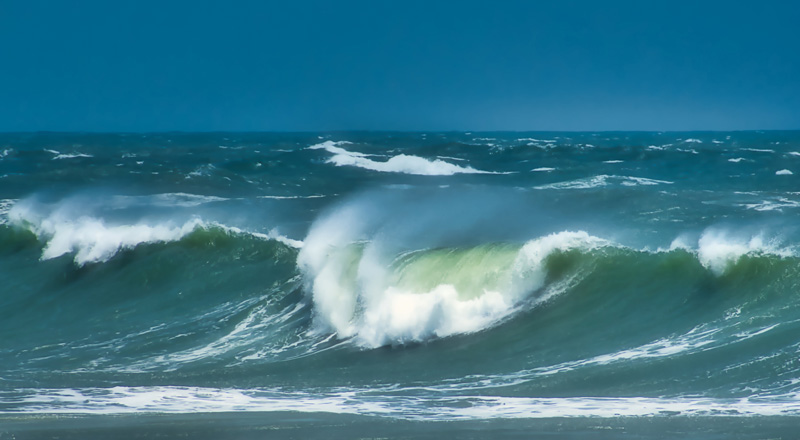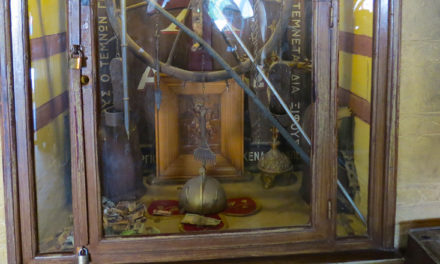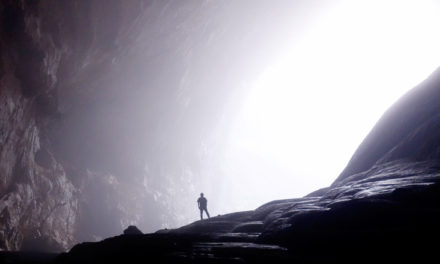Navigating Waves
Tena tātou katoa e te iwi mīhana… (Greetings to all the people in mission),
This month’s whakataukī (proverb) is: “Āta tirohia te ngaru nui, te ngaru roa, te ngaru pae whenua.” [Notice carefully the great wave, the long wave, the shoreward wave].
For some time now I have found maritime metaphors very helpful in comprehending the fluid realities in which we live. In fact, I have borrowed wholesale from a maritime metaphor to define a new way of locating the World Evangelical Alliance Mission Commission in the world of missions as a ‘Missions-Port’.
There is a world of difference between navigating the oceans and following a land-map.
There is a world of difference between navigating the oceans and following a land-map. Oceans move and the environment changes. Accomplished maritime navigators use this to their advantage. The currents and wind must be harnessed or they will work against you. Even the course of powered ocean vessels needs to be constantly adjusted to account for the ever-changing environment.
With a rich heritage of ocean navigation and livelihood, maritime metaphor is inherent to a Māori understanding of the world. The proverb above is as much as warning as it is an instruction. Study the waves! Know the context. When your life depends on navigating the seas well, you soon learn what the waves mean. You need to recognise and adapt swiftly to ensure that they work to your advantage rather than your doom.
We have been hit by a wave.
We have been hit by a wave. COVID-19 is a great wave. We saw it slowly growing on the horizon but now that it has struck we find ourselves shocked by the impact and pushed under. I’m not a surfer, but I know what this is like as a boogie-boarder. You grab a breath at the last second as you’re sucked into the wave’s roll. You tumble around waiting for the wave to wash over, sensing for the calm. Thrashing your way to the surface, you suck in air as soon as you find it, hoping the next wave is not following right behind, pushing you into another cycle. The best survival technique is to relax.
In Aotearoa New Zealand we have found some calm. Our head is back above water. We can take a breath and pause to locate ourselves and figure out what our next move should be. Unlike the beach, where we can make our way to the shore, we have emerged into a new reality. On the horizon we can see another wave—the wave of border closures, of economic collapse, of disruption throughout the world as we have known it. This is the long wave.
The damage of a tsunami is not typically made by the large wave shown in Hollywood disaster movies. It is the slow moving swell of a massive amount of water encroaching the land and dislodging everything in its path. A long wave. This one is not the hold-your-breath type. This is one you MUST straddle otherwise you will be destroyed. Get on top of it as soon as possible and ride it out. Yes, it will carry you against your will, but what choice do you have? The current is too strong. This is the time for rip survival. You are quite literally killed if you try to fight against it. Ride it out until the pull starts to dissipate. Only then can you afford to figure out how to navigate your way to safety. We have quite the ride ahead of us and there’s no point trying to predict, prepare or plan our way out of it just yet. We simply don’t have enough information.
The shoreward wave (brings) us to a destination where we can find sure footing once again.
There will come a time, when the pull of the long wave eases, that we sense a change. The wave that was pulling us gives way to a navigable wave that is carrying us. This is the shoreward wave, bringing us to a destination where we can find sure footing once again. We will arrive exhausted and the land will look very foreign. We are wise to remain uncertain for a long while. A temptation to reestablish our old norms should be resisted because the context for which they were suited no longer exists. A new language will need to emerge, adapted to what we discover in the new environment. New systems will grow to accommodate our new communities and new structures will be built to serve this new reality.
Everything will change. The trial that brings us to this new place will change us. Yet, the Scriptures tell us, if we hold to the One Constant through the trial, we will emerge changed for the better—transformed, matured (see James 1:2-4). Our faith in the God of the Psalms, our Rock and Fortress in our time of trouble, is the waka (canoe) that will carry us safely to this new destination. Jesus proved he was the Master of the wind and the waves, we can trust Him in the journey ahead of us, just as Noah trusted. He is God and God does not change.
So, what of missions? Since God does not change, neither will the mission of God. News of Jesus’ reign will be heard in all nations and God’s name will be glorified in all the earth. This promise will be fulfilled. I would not be surprised if the surging tides accelerate the fulfilment of this promise. Where missions becomes a game of catch-up, responding to a frenzied demand for disciplers as new believers throughout the earth seek to grow in, and live out, their faith for the benefit of their communities in the name of Jesus.
Missions will look very different at our new destination.
Whatever transpires, missions will look very different at our new destination. While you’re riding the wave, make yourself ready for change. We will face new challenges and work alongside new colleagues in new ways as we continue to make whole-of-life disciples of all nations. So let’s make sure we stay together and #stayonmission.
Whakapaingia te Atua, to tatou kaiunga ki te ao whanui (May we be blessed as God sends us into the wider world),
Jay







